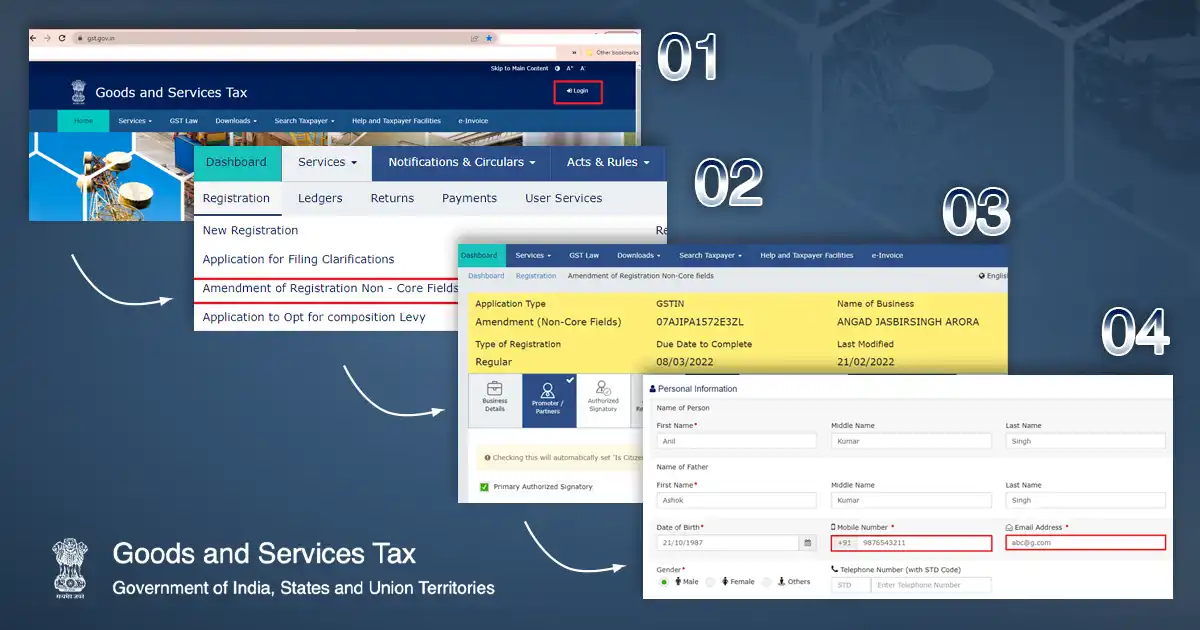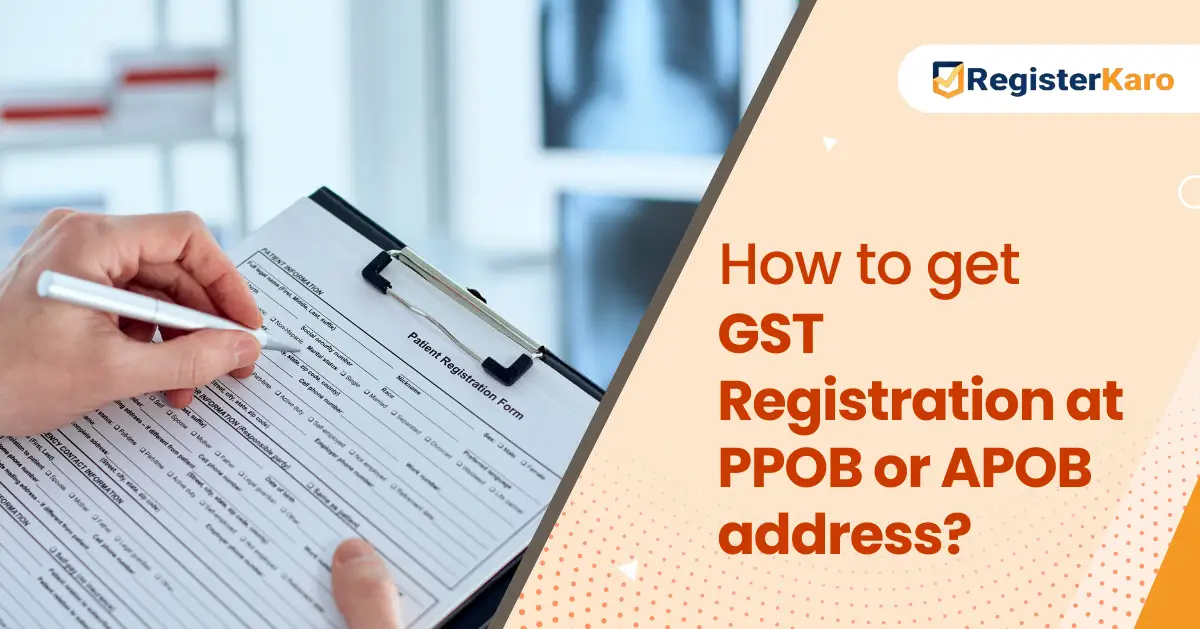
Introduction
Gold has long been a treasured commodity in India, deeply embedded in cultural traditions, investment strategies, and economic transactions. Whether used as a form of savings, adornment, or an asset, gold plays a crucial role in the Indian market. However, taxation policies have significantly evolved over the years, especially with the introduction of the Goods and Services Tax (GST) in 2017. This has transformed the way gold is taxed, affecting buyers, sellers, and traders alike.
Understanding what is GST on gold is crucial for anyone dealing with gold purchases, investments, or trade. This comprehensive guide explores the GST rates applicable to gold, the impact on gold tax in India, jewelry GST rates, compliance, and filing requirements. Whether you are a consumer looking to buy gold jewelry or a jeweler navigating tax regulations, this blog will provide you with all the essential details.
Also Read: Hallmark Registration- Process | Documents Required
What is GST on Gold in India?
Before GST was implemented, gold was subject to various state taxes, excise duties, and VAT, leading to inconsistencies and confusion. With GST, taxation has become more uniform across India, bringing more transparency to gold pricing.
What is the GST rate on raw gold?
Raw gold, including gold bars, bullion, and coins, is subject to a 3% GST. This rate applies to gold in its unprocessed form, mainly purchased for investment or manufacturing jewelry. Before GST, taxes on gold varied by state, but now, a unified 3% rate has simplified transactions and reduced regional tax discrepancies.
What is GST on gold jewelry?
Gold jewelry attracts dual GST rates:
- 3% GST on the gold content itself
- 18% GST on making charges (the labor cost of crafting the jewelry)
This means that when buying gold jewelry, you’re not just paying for the metal but also for the craftsmanship, both of which are taxed differently. These rates ensure that both raw material and workmanship are taxed in a structured way, preventing tax evasion and increasing transparency.
How Do GST Slabs Affect Gold Pricing?
GST slabs are predefined tax brackets that categorize goods and services into different tax rates. In the case of gold, the 3% GST slab applies to the raw material, whereas the 18% slab applies to making charges. This division ensures a clear distinction between the material cost and the craftsmanship value, making it easier for buyers and sellers to understand pricing breakdowns.
Has GST made gold more expensive?
Yes, GST has increased the final cost of gold jewelry. Before GST, making charges were often not taxed, but with the new system, consumers pay 18% GST on the making charges, increasing the total expenditure. While this has led to greater transparency, it has also slightly increased gold prices, making careful purchase decisions more crucial than ever.
Calculating: What is GST on Gold Purchases?
Calculating GST on gold purchases requires a breakdown of costs:
- Determine the gold price: The base price of gold depends on market rates.
- Identify making charges: Jewelers charge a percentage of the gold price for design and labor.
- Apply GST rates:
- 3% GST on the gold value
- 18% GST on making charges
Example Calculation
Let’s assume you’re purchasing a gold necklace:
- Gold price for 10 grams = ₹50,000
- Making charges (10%) = ₹5,000
- GST on gold = 3% of ₹50,000 = ₹1,500
- GST on making charges = 18% of ₹5,000 = ₹900
- Total GST payable = ₹2,400
This makes the total cost ₹52,400, illustrating how GST directly impacts gold purchases.
GST Compliance for Gold Traders and Jewelers
Businesses in the gold industry must follow GST compliance regulations strictly to ensure smooth operations and avoid legal complications. Understanding what is GST on gold and its implications is crucial for traders and jewelers.
Do Jewelers Need GST Registration?
Yes, any jeweler with an annual turnover exceeding ₹40 lakhs (₹20 lakhs for special category states) must register for GST. Registration ensures they can collect tax from customers and claim an input tax credit (ITC). Understanding what is GST on gold is essential, as different GST slabs apply to raw gold, making charges, and finished jewelry.
What Are the Invoicing Requirements for Jewelers?
Jewelers must issue GST-compliant invoices that clearly display:
- Gold price
- Making charges
- GST applied on both components
Proper invoicing is necessary for GST filing in India to ensure compliance and avoid penalties. Since what is GST on gold is a common concern among traders, they must ensure accurate documentation to claim ITC and prevent tax disputes.
Impact of GST Filing on Gold Trade
GST filing in India involves submitting tax returns regularly. Traders and jewelers must file monthly or quarterly GST returns detailing:
- Sales transactions
- Purchases
- Taxes collected and paid
Understanding what is GST on gold also helps businesses navigate tax slabs and make informed pricing decisions. For instance, while raw gold attracts 3% GST, making charges may be subject to 5% GST if billed separately.
Failure to file GST returns on time can result in penalties and legal consequences, making GST compliance a crucial aspect of running a gold business. To stay competitive, jewelers must stay updated on what is GST on gold and adhere to the latest tax regulations.
By maintaining proper records, filing timely returns, and understanding what is GST on gold, jewelers can optimize their tax obligations and ensure business growth.
Can Jewelers Claim Input Tax Credit (ITC) on GST?
Yes, jewelers can claim the Input Tax Credit (ITC) for the GST paid on raw gold purchases, which helps reduce their overall tax liability. Under the GST compliance framework, businesses registered under GST filing in India can offset the tax paid on their inputs against the tax collected on sales.
This mechanism prevents double taxation and ensures that taxes are levied only on the value addition at each stage. For jewelers, this means that the GST paid on raw gold, semi-finished jewelry, and making charges can be claimed as ITC, provided they meet the necessary conditions set by the government.
However, there are some key considerations:
- Proper Documentation: To claim ITC, jewelers must maintain proper invoices and records as per GST compliance norms.
- GST Filing: Timely and accurate GST filing in India is necessary to avail ITC benefits.
- GST Slabs and Rates: The jewelry GST rates vary depending on the type of gold product. While raw gold and bullion attract 3% GST, the making charges may be subject to 5% GST if not included in the total value of jewelry.
By utilizing ITC efficiently, jewelers can optimize their tax payments and maintain better cash flow in their business.
How Does GST Impact Gold Investment?
Gold has always been a preferred investment in India, but the introduction of GST on gold has made it slightly more expensive. Currently, the gold tax in India includes a 3% GST on gold purchases, which investors must factor into their buying decisions.
Key Impacts: What is GST on Gold Investment:
- Higher Purchase Cost: Unlike the pre-GST era when VAT and excise duty were applicable, gold now attracts 3% GST on gold value and 5% GST on making charges, increasing the overall cost for buyers.
- Gold ETFs and Digital Gold: Some investors opt for Gold ETFs (Exchange-Traded Funds) or digital gold to bypass the GST burden, as these forms of investment do not involve physical purchases subject to jewelry GST rates.
- Resale and Taxation: When reselling gold, GST compliance becomes crucial. While physical gold attracts GST at the time of purchase, selling old jewelry to a jeweler is not subject to GST, as it falls under the “second-hand goods” exemption.
- GST Slabs and Exemptions: The GST slabs for gold are relatively straightforward—3% GST on raw gold and bullion and 5% GST on making charges (if billed separately). Investors must be aware of these slabs to make informed decisions.
Despite the additional cost due to GST, gold remains a valuable investment option in India. However, investors and jewelers must stay updated with GST filing in India requirements to ensure compliance and maximize financial benefits.
Conclusion
Understanding what is GST on gold is essential for anyone involved in the gold industry. While GST has streamlined taxation and increased transparency, it has also raised the overall cost of gold jewelry. Buyers must be aware of both the 3% GST on gold and the 18% GST on making charges, while traders and jewelers must comply with GST registration, filing, and invoicing requirements.
Staying updated with gold tax India, GST slabs, and GST filing in India is crucial for making informed buying or business decisions. Whether purchasing gold as an investment or jewelry, knowing the tax implications can help you navigate the market efficiently.
Ready to ensure full compliance? Reach out to trusted platforms like RegisterKaro and make your compliance journey hassle-free. This will allow you to focus on what truly matters—growing your business.
Frequently Asked Questions
A: Yes, imported gold is subject to customs duty and GST at 3%.




